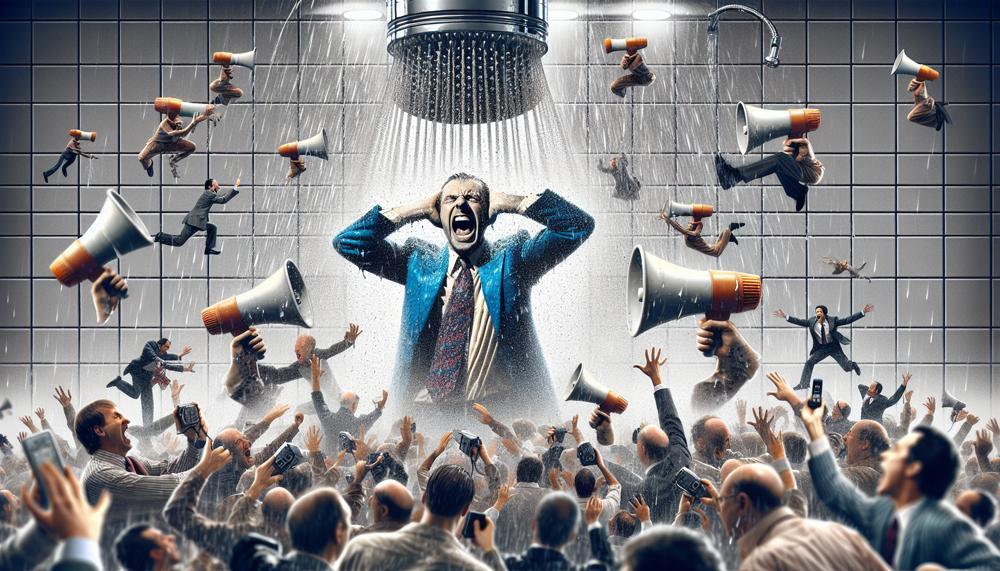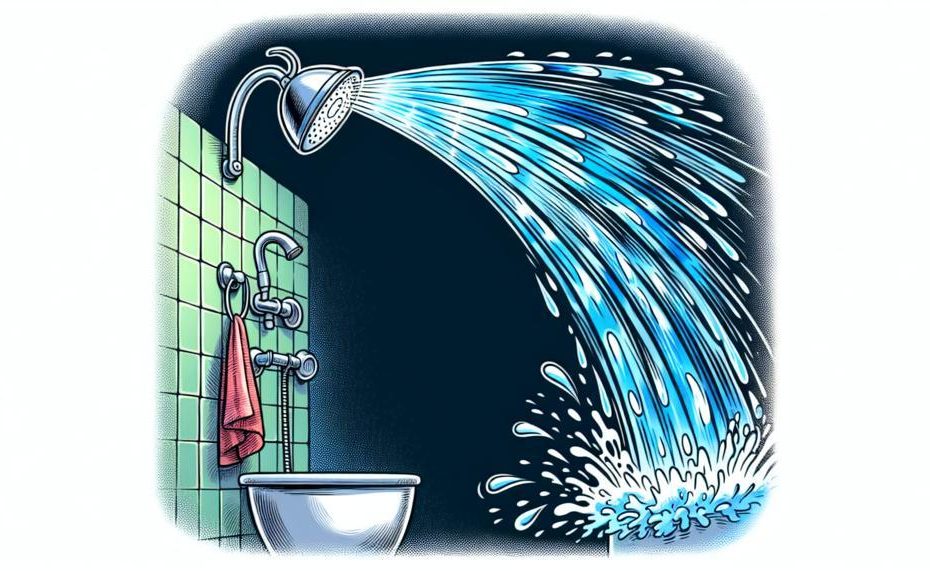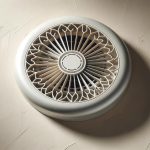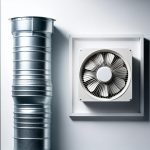As you stand under the warm water, relishing in the soothing sensation of a shower, suddenly your peaceful moment is shattered by a high-pitched whistle that sounds eerily similar to a boiling kettle. You’re not alone in this experience – many have been puzzled by the strange sound coming from their showers. But why does it happen?
In this blog post, we will delve into the science behind this phenomenon and offer potential solutions.
So, why does my shower sound like a kettle?
A shower may sound like a kettle due to high water pressure, which can cause the water to vibrate and create a high-pitched sound. This is similar to the sound of a teakettle whistling.
Here are some other reasons why a shower may sound like a kettle:
- Clogged showerhead: Harmless minerals in water can collect on the showerhead and block the flow of water, causing a whistling sound
- Blocked shower cartridge: Debris can block the shower cartridge in the shower valve, causing the shower to sing
- Broken shower valve: A worn out valve may cause leaking or whistling
- Clogged pipes: Limescale buildup in the pipes can cause the heat exchanger to fill up with water and overheat, releasing it as steam, which may sound like a kettle
- Pressure changes: Even minor leaks can cause pressure changes throughout the plumbing system, creating turbulence that leads to whistling
- Residue issues: Residue buildup can cause a faucet to squeal, often underneath or around the washer seat, or inside the faucet stem
So, if you’re tired of feeling like you’re bathing in a tea kettle rather than a shower, read on to discover what’s causing that bothersome whistle and how to put an end to it.
Contents
- 1 Why Does My Shower Sound Like A Kettle?
- 2 Potential Causes of a Kettle-Like Sound in Your Shower
- 3 Identifying the Main Culprit: How to Determine the Source of the Noise
- 4 DIY Solutions for Fixing a Whistling Shower
- 5 When to Call a Professional Plumber for Help
- 6 Preventing Future Noises: Proper Maintenance and Installation Tips
- 7 Other Possible Issues That Can Cause a Kettle-Like Sound in Your Shower
- 8 Conclusion
Why Does My Shower Sound Like A Kettle?
This can be caused by various plumbing problems such as high water pressure, mineral build-up, worn-out washers, and more. To resolve this issue, it is crucial to identify the main culprit and take appropriate action.
Here are some potential causes and solutions for a whistling shower:
High Water Pressure:
- Elevated water pressure can cause pipes and valves to vibrate, creating a high-pitched noise.
- Install a water pressure regulator to reduce the pressure and prevent damage to the plumbing system.
Mineral Build-up:
- Accumulation of mineral deposits in the aerator or shower head can create restricted water flow and a whistling sound.
- Use vinegar to dissolve the build-up or replace the affected parts if necessary.
Worn-out Washers:
- Over time, washers in faucets and valves can wear out, leading to leaks and noise.
- Replace the worn washers with new ones to eliminate the whistling sound.
Damaged Shower Head:
- Cracks or holes in the shower head can disrupt the flow of water and cause noise.
- Replace the damaged shower head with a new one.
Faulty Valves:
- Issues with valves, cartridges, or diverter valves can also contribute to a kettle-like sound.
- Inspect and repair or replace any faulty valves.
Clogs:
- Clogs in pipes or drains can cause gurgling or humming noises when the shower is turned on.
- Use vinegar or a plumbing snake to remove the clogs.
Aside from these possible causes, proper maintenance of your shower and plumbing system is essential to prevent future issues. Regularly clean and inspect components such as aerators, shower heads, pipes, and valves.
If you are unsure how to fix the issue yourself, it is best to consult a professional plumber for assistance. Addressing unusual noises in your shower early on can prevent potential hazards and costly repairs in the future.
Potential Causes of a Kettle-Like Sound in Your Shower
The presence of a kettle-like sound in your shower may be an indication of underlying issues that require attention. Below are some potential causes and solutions to address this problem:
High Water Pressure
One of the most common reasons for a kettle-like sound in a shower is high water pressure. This can exert excessive pressure on the pipes, causing them to vibrate and produce loud noises.
To resolve this issue, consider installing a water pressure regulator to decrease the pressure and prevent damage to your plumbing system.
Mineral Build-up
Mineral build-up in the shower head or pipes can also lead to a kettle-like sound. This is often caused by hard water, which contains high levels of minerals such as calcium and magnesium. To dissolve these deposits, you can use a mixture of equal parts water and vinegar.
Pour the solution into a plastic bag and tie it around the shower head, allowing it to soak overnight. In the morning, remove the bag and run hot water through the shower to flush out any remaining residue.
Worn-out Washers
Another possible cause for a kettle-like sound in your shower could be worn-out washers. These small rubber or plastic rings create a seal between different parts of the shower system. Over time, they may become damaged or worn, causing water to leak and resulting in noise.
To address this issue, simply replace the washers with new ones.
Damaged Shower Head
If none of the above solutions work, it is possible that your shower head itself is damaged and needs to be replaced. Cracks or corrosion in the shower head can cause unusual noises when water flows through it.
Consider replacing your shower head with a new one to see if that resolves the issue.
Clogged Pipes
Clogs in your plumbing system can also lead to strange noises in your shower. These clogs can be caused by hair, soap scum, or other debris getting trapped in the pipes. To address this issue, you can use a plunger or a plumbing snake to clear the clog.
If the clog is severe, it may be necessary to seek assistance from a professional plumber.
Faulty Valves or Relays
In some cases, the problem may not lie with your shower specifically, but with the valves or relays in your plumbing system.
These valves control the flow of water and if they become damaged or stuck in the ON position, it can result in loud noises in your shower. Consider calling a professional plumber to inspect and replace any faulty valves or relays.
Identifying the Main Culprit: How to Determine the Source of the Noise
Identifying the main culprit behind a noisy shower that resembles a boiling kettle can be quite challenging. However, with keen observation and basic troubleshooting, you can pinpoint the source of the noise and find a suitable solution.
Here are some steps to help you in this process:
- Step 1: Carefully listen to the sound and determine its origin. The first step in identifying the source of the noise is to carefully listen and try to locate where it is coming from. Is it originating from the showerhead, pipes, or somewhere else?
- Step 2: Check for mineral buildup in the showerhead. One common cause of a kettle-like noise in showers is mineral buildup in the showerhead. This occurs due to hard water, which contains high levels of minerals such as calcium and magnesium. To check for mineral buildup, remove the showerhead and inspect it for any deposits. If you find any, soak the showerhead in a solution of equal parts water and vinegar for about an hour, then scrub off the deposits with a toothbrush.
- Step 3: Inspect for faulty valves or clogs in pipes. Another possible cause of a noisy shower is faulty valves or clogs in pipes. These issues can result in high water pressure, resulting in loud noises when water flows through them. If you suspect this may be the case, it’s best to seek professional help as these problems may require specialized tools and expertise to resolve.
- Step 4: Consider installing a pressure-reducing valve. If high water pressure is causing the noise in your shower, consider installing a pressure-reducing valve. This device regulates water pressure and can help reduce noise levels in your shower.
- Step 5: Regularly clean and maintain plumbing fixtures. To prevent problems such as mineral buildup, leaks, and damage to plumbing fixtures, it’s vital to routinely clean and maintain them. This includes unclogging drains, inspecting for leaks, and promptly addressing any issues.
- Step 6: Seek professional help for complex issues. If the noise in your shower persists or you notice any other plumbing problems, it’s advisable to seek professional help. This can save you from potentially causing further damage and incurring costly repairs in the future.
By following these steps, you can identify the main culprit behind the noise in your shower that sounds like a boiling kettle and take appropriate measures to resolve it.
DIY Solutions for Fixing a Whistling Shower
- Identify the origin of the whistling: The primary step in resolving a whistling shower is to locate the source of the noise. This can be accomplished by listening closely and inspecting the showerhead, water pressure, and pipes for any complications.
- Adjust the water pressure: High water pressure is a common culprit of whistling showers. You may use a water pressure gauge to measure the pressure and regulate it accordingly. Another option is to install a pressure-reducing valve to control the flow of water.
- Cleanse the showerhead and hose: Mineral buildup and limescale can also lead to a whistling sound in your shower. To eliminate these deposits, soak the showerhead and hose in white vinegar for a few hours, then scrub away any remaining residue.
- Replace defective valves or washers: Faulty valves or washers can also contribute to a whistling shower. Check for any leaks or abnormalities in these components and replace them if necessary.
- Monitor water pressure: It’s crucial to regularly monitor the water pressure to ensure it remains at a safe level. If you notice any changes or inconsistencies, it may be time to seek professional assistance.
These simple solutions can effectively resolve a whistling shower, but it’s vital to follow them accurately. If the issue persists or you’re uncertain about making repairs on your own, it’s best to consult a professional.
When to Call a Professional Plumber for Help
There are numerous scenarios in which it is highly advisable to enlist the services of a professional plumber when dealing with a noisy shower, including:
- In cases where the source of the noise is indeterminable or exceeds your level of expertise.
- If the troublesome noise persists despite attempting to resolve the issue independently.
- When the bothersome noise is accompanied by other plumbing complications, such as diminished water pressure or slow draining.
- In situations where you have resorted to using chemical drain cleaners as a means of rectifying the issue.
- If you are uncertain about how to troubleshoot the noisy shower or lack the necessary tools for repair.
It is crucial to remember that these are just a few instances and not a comprehensive list of situations in which you should seek professional plumbing help for a loud shower. Like with any plumbing issue, it is always advisable to err on the side of caution and seek expert help rather than running the risk of causing more harm or making the current issue worse.
Preventing Future Noises: Proper Maintenance and Installation Tips
To prevent your shower from making noises similar to a boiling kettle, here are some easy and effective tips for maintenance and installation:
Install a pressure-balancing valve
A pressure-balancing valve is a device that helps prevent sudden changes in water temperature caused by someone flushing a toilet or using water elsewhere in the house.
This mechanism automatically adjusts for temperature changes, ensuring that the water temperature does not fluctuate by more than 3° F, even when there is a drastic drop in water pressure.
Use an anti-scald device
Anti-scald devices are mandatory in hospitals and nursing homes and are now also required in residential remodeling and new construction projects in 31 states.
These devices are a wise investment as they can prevent injuries caused by sudden changes in water temperature while bathing.
Consider the Delta Monitor II two-handle pressure-balancing valve
The Delta Monitor II is a two-handle pressure-balancing valve that is suitable for replacing existing two-handle faucets without the need for an unattractive trim plate. To install this valve, remove the old faucet handles, escutcheons, showerhead, and tub spout.
Cut an opening in the backside of the plumbing wall and enlarge the handle holes if necessary. Solder male adapters onto copper pipes to connect to the threaded inlet and outlet ports on the valve. Use Teflon tape to seal any connections.
Ensure all connections are securely fastened
Make sure that all connections in your shower are tightly secured to prevent any vibrations or movements that could cause noise. Check for loose pipes, fittings, and connections and tighten them if necessary.
Use silicone caulk to seal any gaps
To prevent air from escaping and creating noise, use silicone caulk around trim plates and tub spouts to seal any gaps.
Regularly clean shower components
Build-up in shower components such as aerators, washers, and showerheads can cause noise. Regularly clean these components to ensure proper water flow and reduce noise.

Address any unusual noises promptly
If you notice any gurgling, humming, or whistling noises in your shower, address them promptly to avoid potential hazards such as scalding hot water or burst pipes. Identify the main culprit and take appropriate action, whether it be fixing it yourself or calling a professional.
Other Possible Issues That Can Cause a Kettle-Like Sound in Your Shower
There are various potential problems that can result in a kettle-like sound in your shower. These may include excessively high water pressure, a clogged or dirty aerator, a worn-out washer, or cracks and holes in the showerhead.
To accurately identify and resolve these issues, please follow the steps outlined below:
- Check the water pressure: If you notice a loud sound accompanied by high water pressure, it could be indicative of a malfunctioning water pressure regulator. In such a case, it is advisable to seek the assistance of a professional plumber to install a new regulator.
- Clean the aerator: A blocked or unclean aerator can cause increased water pressure and create a whistling sound. To address this problem, remove the aerator and clean it with white vinegar to eliminate any accumulation.
- Replace the showerhead: In instances where your showerhead is unable to regulate high water pressure effectively, it may be necessary to replace it with one that can handle the flow of water appropriately.
- Tighten connections and replace damaged washers: Loose connections and damaged washers inside the showerhead can also contribute to whistling noises. To resolve this issue, ensure all connections are tightened, and any damaged washers are replaced.
- Check for cracks or holes in the showerhead: A showerhead with cracks or holes will not only produce noise but also lead to wastage of water. Replacing it with a new one will effectively address this issue.
- Clean the pipes: Regularly cleaning your pipes can help prevent blockages and buildup, which can cause loud noises in your bathroom.
- Replace faulty valves: Damaged or worn-out valves can also contribute to whistling sounds. In such cases, replacing them may be necessary for proper functioning.
- Check for a stuck switch or relay: A stuck switch or relay can keep the shower component powered and result in a kettle-like sound. It is crucial to check and rectify this issue immediately to avoid further damage.
- Inspect the thermostat: If your shower is producing boiling water, it could be indicative of a faulty thermostat. In such cases, professional attention is required to prevent scalding hot water and potential burns.
- Replace the shower pump: A damaged shower pump with worn-out bearings or impellers can cause screeching or whining sounds. In such instances, replacing the pump may be necessary.
- Check for any restrictions: Painted showerheads, narrow pipes, or incorrect installation of the pump on wooden flooring can also restrict proper water flow and result in noise. It is essential to ensure there are no obstructions or restrictions in the system.
Conclusion
In conclusion, a number of plumbing problems, including high water pressure, mineral buildup, or worn-out washers, may be the cause of the constant whistle that sounds like a boiling kettle in your shower.
Finding the underlying problem and taking the appropriate action to address it are critical. Ignoring the issue may eventually result in dangerous situations and expensive fixes.
In order to avoid future disturbances and guarantee a tranquil showering experience, don’t forget to routinely repair your plumbing system and shower.





